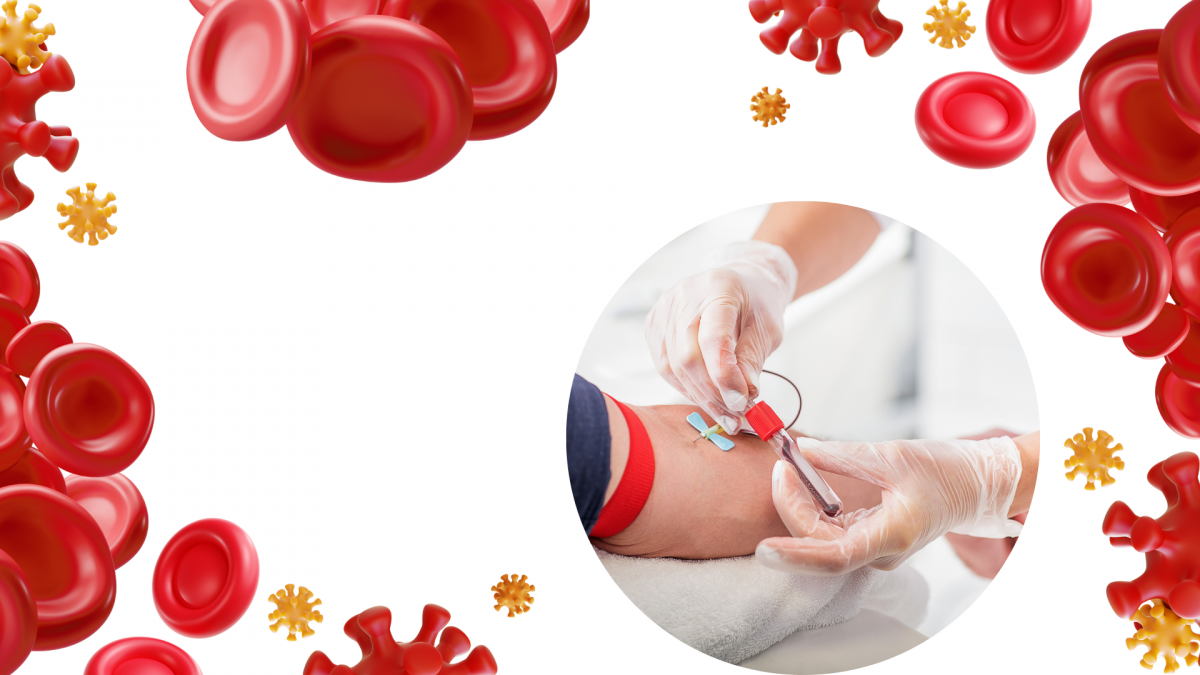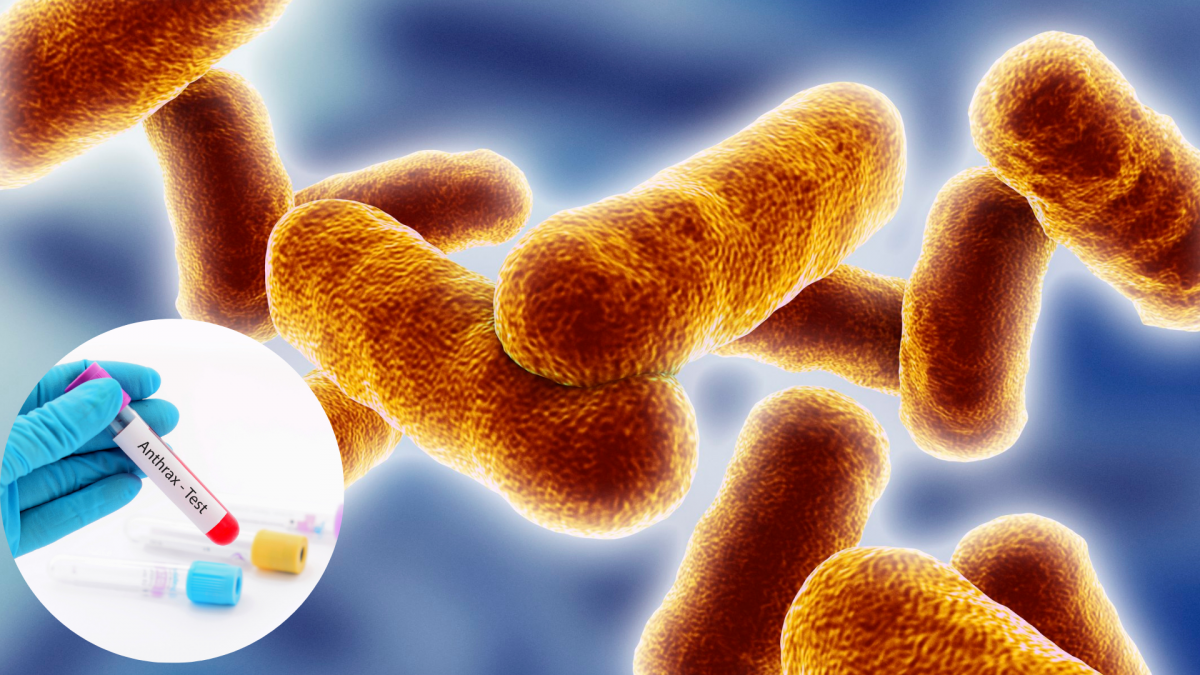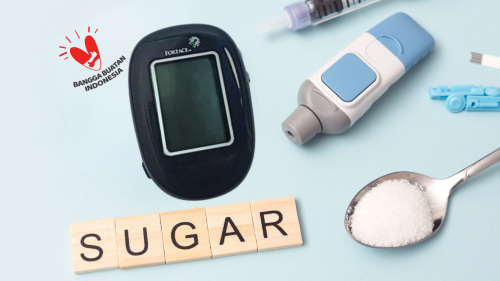
16 May 2025
REVOLUTIONIZING DIABETES MANAGEMENT: INDONESIA’S OWN BLOOD GLUCOSE METER INNOVATION
Diabetes mellitus is a chronic metabolic disorder characterized by the body's inability to produce or effectively use insulin, leading to elevated blood glucose (sugar) levels. If left uncontrolled, diabetes can cause severe complications such as kidney failure, blindness, slow-healing wounds, heart attacks, and strokes.
According to the International Diabetes Federation (IDF) Diabetes Atlas 2021, Indonesia ranks 5th in the world with over 19.5 million people living with diabetes, more than 50% of whom are unaware they have the disease. This underscores the critical need for early detection and regular blood glucose monitoring to prevent fatal complications.

10 April 2025
BOUNCE BACK AFTER EID: SIMPLE AT-HOME CHECKS FOR A HEALTHIER YOU
Eid al-Fitr is a cherished time for joyful gatherings, spiritual reflection, and enjoying a variety of delicious dishes. From savory meals like rendang and opor ayam to sweet treats and cookies, it's common for dietary habits to shift during the celebration—often involving foods high in fats, sugars, and purines. While indulging is part of the tradition, it can pose temporary metabolic challenges.
To support recovery and restore balance, it's highly recommended to monitor your blood sugar, cholesterol, and uric acid levels—especially in the weeks following Eid.

10 March 2025
CAN PEOPLE WITH DIABETES FAST? HERE’S WHAT YOU NEED TO KNOW!
Fasting during Ramadan is an important religious practice for Muslims. However, for people with diabetes, fasting can be challenging. Changes in eating schedules and food intake can affect blood sugar levels, increasing the risk of low blood sugar (hypoglycemia) or high blood sugar (hyperglycemia).
According to the International Diabetes Federation (IDF) and the Diabetes and Ramadan (DAR) International Alliance, people with diabetes can fast if their condition is stable and under medical supervision. So, how can diabetics fast safely?

19 December 2024
WHY MONITORING KETONES IS A LIFESAVER FOR DIABETICS
For people with diabetes, maintaining health is about controlling blood sugar levels and monitoring the presence of ketones in the body. Ketones are compounds formed when the body starts breaking down fat as an energy source due to a lack of glucose. Monitoring ketones is essential to prevent serious complications such as diabetic ketoacidosis (DKA).
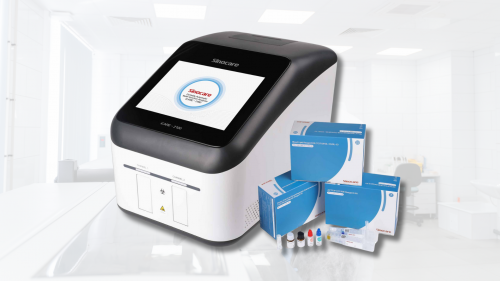
19 November 2024
SINOCARE iCARE-2100 MULTI-FUNCTION ANALYZER: A REVOLUTION IN FAST AND ACCURATE MEDICAL ANALYSIS
In today’s world, the demand for medical devices that are practical, fast, and multifunctional is ever-growing, especially for early diagnosis and regular patient monitoring. Amid this progress, Sinocare introduced the iCARE-2100 Multi-Function Analyzer, a device designed to deliver precise and instant diagnostic results. Tailored to meet diverse clinical analysis needs, the iCARE-2100 offers an efficient solution for medical professionals and clinics that require a portable device for multi-parameter measurements.
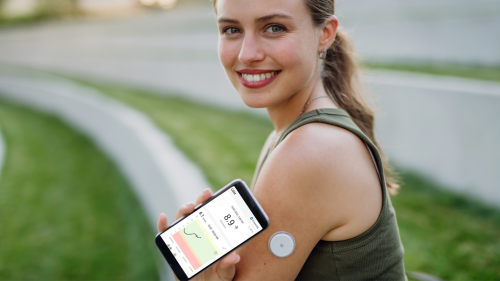
21 August 2024
CONTINUOUS GLUCOSE MONITORING (CGM): REVOLUTIONIZING DIABETES MANAGEMENT
Continuous Glucose Monitoring (CGM) is a transformative technology in diabetes management, offering real-time insights into glucose levels. Unlike traditional methods that require finger pricks and test strips, CGM systems continuously track glucose levels throughout the day and night. This constant monitoring helps individuals with diabetes maintain better control over their blood glucose levels, reducing the risk of both short- and long-term complications.
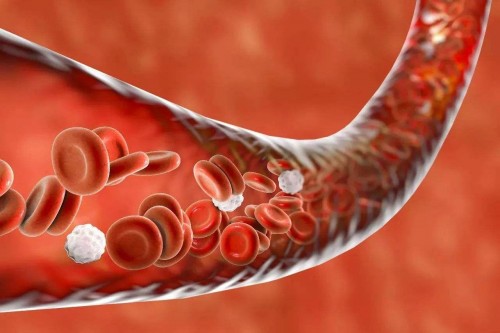
21 May 2024
WHAT IS A PHOTOMETER AND ALL ITS ADVANTAGES
A photometer is a laboratory instrument that can measure the concentration of chemical substances in biological samples using the principle of photometry. There are three measurement methods: kinetic, fixed-time, and end-point. The main advantages of a semi-automatic photometer include flexibility, ease of use, lower cost, scalability, and easy maintenance. This device is ideal for medium-sized laboratories and hospitals with a limited number of patients.

25 April 2024
MYTHS AND FACTS: ADDRESSING DIABETES STIGMA ON WORLD DIABETES DAY
World Diabetes Day is commemorated annually to raise awareness about diabetes, promote prevention, proper treatment, and care, as well as to support individuals living with this condition. However, alongside medical challenges, social stigma also poses a significant issue for those facing diabetes. This stigma can have negative impacts on quality of life and diabetes management. In this article, we will explore some common myths about diabetes, as well as facts that support a better understanding of this condition.

19 February 2024
HEALTH KEY: WHY IS BLOOD CHEMISTRY TESTING IMPORTANT?
Blood chemistry testing is a highly important medical procedure, delving into the complex chemical composition of blood to measure key parameters such as liver function, kidney function, glucose levels, cholesterol, and electrolytes in the blood. With its ability to detect diseases, monitor medical conditions, evaluate organ function, and assess treatment effectiveness, this test serves as a cornerstone in modern healthcare.

21 December 2023
UNDERSTANDING SYMPTOMS OF DIABETIC EYE DISORDERS
Diabetes poses a significant risk to eye health, potentially leading to severe conditions like diabetic retinopathy and faster-onset cataracts. Detecting early signs of these eye disorders is challenging but crucial for protection. Symptoms include blurry vision, sudden changes, light sensitivity, and peripheral vision loss. Early detection through regular eye exams by specialists is vital to prevent extensive damage. Controlling blood sugar levels, routine check-ups, and a healthy lifestyle are key preventive measures to manage diabetes and minimize eye-related complications.

14 December 2023
UNVEILING CRUCIAL FACTS ABOUT DIABETES
Diabetes is a medical condition whose global prevalence continues to escalate. With extensive ramifications on individual health and healthcare systems, a better understanding of this condition becomes increasingly vital. Here are some crucial facts that need to be comprehended about diabetes.

29 October 2023
THE IMPORTANCE OF EARLY DETECTION AND SWIFT ACTION IN STROKE CASES
Stroke is a serious medical condition that can occur suddenly and be life-threatening. Early detection and prompt action are crucial in improving prognosis and minimizing brain damage caused by a stroke. This article will discuss why early detection and swift action are paramount in cases of stroke.

28 August 2023
RAISING AWARENESS OF THE IMPORTANCE OF METABOLIC HEALTH IN CHILDREN
Metabolism, a complex process that occurs within the body, plays a central role in converting nutrients into the energy needed for growth, development, and bodily functions. During critical stages of growth and development, such as childhood and adolescence, metabolic health has significant long-term implications for children's futures. Maintaining good metabolic health during these periods can help prevent serious health risks later in life, such as obesity and type 2 diabetes.

17 July 2023
MAINTAINING FAMILY HEALTH THROUGH REGULAR HEALTH CHECK-UP
Maintaining family health is crucial for achieving a quality and harmonious life. One important step to take is regularly conducting health check-ups. Periodic health check-ups help in the early detection of potential health issues before symptoms arise, allowing for early intervention. They also aid in preventing the spread of communicable diseases among family members. Furthermore, health check-ups promote awareness of healthy lifestyles and reduce long-term healthcare costs.

14 June 2023
A HEALTHY FAMILY BEGINS WITH PROPER BODY METABOLISM FUNCTION EXAMINATION
The article stresses the importance of routine examinations to monitor metabolic function, which helps identify potential health risks and underlying issues. It emphasizes the role of balanced nutrition and physical activity in maintaining a healthy weight and controlling blood sugar levels. The inclusion of stress management as a crucial aspect of proper metabolism is highlighted. Overall, the article serves as a useful starting point for understanding the importance of proper body metabolism in maintaining a healthy family. Further expansion and inclusion of specific details would enhance its educational value.

01 June 2023
BLOOD GLUCOSE MONITORING FOR PEDIATRIC HEALTH IN TYPE 1 DIABETES MELLITUS
This article highlights the importance of blood glucose monitoring for pediatric health in children with Type 1 Diabetes Mellitus (T1DM). Blood glucose monitoring plays a crucial role in the management of T1DM in children, allowing for timely adjustments in insulin therapy, diet modifications, and lifestyle changes. The article emphasizes the benefits of monitoring blood glucose levels, including achieving optimal glycemic control, individualized treatment planning, early detection of glucose fluctuations, and empowering children and their families in self-care. The methods of blood glucose monitoring discussed include self-monitoring of blood glucose (SMBG) and continuous glucose monitoring (CGM), with advancements in technology such as closed-loop systems and mobile applications enhancing the monitoring process. Overall, regular blood glucose monitoring is vital for maintaining pediatric health in children with T1DM and improving their overall well-being while reducing the risk of complications.

29 May 2023
CULTIVATING SELF-EXAMINATION FOR MONITORING BODY METABOLISM FUNCTION
Maintaining a healthy lifestyle involves understanding and monitoring the body's metabolism. Metabolism refers to the chemical processes that occur within living organisms to sustain life. Regular self-examination and monitoring of one's metabolism can provide valuable insights into overall health and aid in the early detection of potential health issues. This article aims to explore the importance of self-examination for monitoring body metabolism, highlighting its benefits and providing practical tips for implementing this practice into daily life.

05 May 2023
IMPROVING MATERNAL AND CHILD HEALTH SERVICES WITH POCT TECHNOLOGY
This article discusses how point-of-care testing (POCT) technology can improve maternal and child healthcare services by providing fast and reliable diagnostic results, leading to better care and outcomes. POCT can be used to diagnose and manage various conditions such as infectious diseases, anemia, and gestational diabetes. It can also improve access to healthcare services for remote and underserved areas.The use of POCT can prevent complications such as premature delivery and low birth weight, ultimately leading to better maternal and child health outcomes.

07 April 2023
RECOGNIZING VARIOUS TYPES OF POINT-OF-CARE TESTS
Point-of-care testing, otherwise referred to as near-patient, bedside, or extra laboratory testing, is not new. Many of the early “diagnostic tests” were first done at the bedside. Over the past few years, however, analytical systems have been developed that enable a wide range of tests to be done quickly and simply without the need for sophisticated laboratory equipment. The key objective of point-of-care testing is to generate a result quickly so that appropriate treatment can be implemented.

25 January 2023
KNOW THE RULES KETOFASTOSIS DIET FOR DIABETES
Diabetics need various ways to normalize blood sugar levels again. Among other things, by adjusting the diet and types of foods with a low glycemic index. Adjusting the diet is known as a diet.

27 December 2022
HOW TO MONITORING BLOOD SUGAR PROPERLY
Diabetes is a condition that hinders the body’s ability to produce or use insulin. This hormone is responsible for enabling cells to use glucose in the blood as an energy source. Managing diabetes is more important to help manage this condition, people must control their blood glucose and aim to keep sugar levels within a healthy range.

12 November 2022
National Health Day 2022
National Health Day is celebrated every November 12. Everyone can play a role in raising awareness of the importance of health, PT Isotekindo also plays a role in increasing health awareness by providing various types of medical devices that can be used for personal use or in health facilities.

29 October 2022
PREVENT STROKE: WHAT YOU CAN DO
A stroke is a serious life-threatening medical condition that happens when the blood supply to part of the brain is cut off. The sooner a person receives treatment for a stroke, the less damage is likely to happen.

18 October 2022
THE CORRELATION BETWEEN MENOPAUSAL SYMPTOMS AND METABOLIC SYNDROME IN POSTMENOPAUSAL WOMEN
The most common symptoms during menopausal transition and menopause are vasomotor symptoms. Women with metabolic syndrome (central obesity, insulin resistance, and dyslipidemia) are known to be at especially high risk for cardiovascular disease (CVD). The prevalence of metabolic syndrome increases with menopause and may partially explain the apparent acceleration in CVD after menopause..

29 September 2022
HEALTHY LIFESTYLE FOR OUR HEART
Heart disease is a leading cause of death, but it's not inevitable. While you can't change some risk factors such as family history, sex, or age there are plenty of ways you can reduce your risk of heart disease. When you choose healthy behaviors, you can lower your heart disease risk while also preventing other serious chronic conditions like type 2 diabetes and some kinds of cancer.

24 September 2022
HOW TO STAY FIT FOREVER: 8 TIPS TO KEEP MOVING WHEN LIFE GETS IN THE WAY
Can you carry on exercising when your motivation slips, the weather gets worse or your schedule becomes overwhelming?

06 July 2022
“MENARI” TO DETECT HEART RHYTHM DISORDERS
MENARI “MEraba denyut NAdi sendiRI” is a campaign created by the Indonesian Ministry of Health which aims to detect heart rhythm disorders early.,

01 June 2022
BE AWARE OF DIABETES MELLITUS TYPE 1 IN CHILDREN
Diabetes mellitus in children is a condition that must be monitored, especially for children who are at risk of developing diabetes. Some of the symptoms and how to deal with them will be discussed in the following article

29 May 2022
8 GUIDE TO STAYING HEALTHY FOR THE ELDERLY
Health is something that is most coveted for many elderly, age should be a spirit to continue to live healthily, and don't worry, here are 8 tips for you to live a healthy life

24 February 2022
THE IMPORTANCE OF NUTRITION INTAKE AND MEAL SCHEDULE FOR DIABETES
Patients with diabetes require a special nutritional diet to effectively regulate blood sugar levels while meeting their nutritional needs to achieve and maintain optimal metabolism, prevent chronic complications, and so on. In addition to a special nutritional diet, several other factors must be noticed.

07 October 2020
HIGH LEVELS OF KETONES IN YOUR BLOOD ARE A SIGN THAT SOMETHING IS WRONG
Large amounts of ketones build-up, blood acidity increases, and you have what is called diabetic ketoacidosis, or DKA for short, a medical problem that needs urgent treatment.

01 May 2019
HBA1C EXAMINATION IS ACCURATE, PRACTICAL AND AFFORDABLE
The higher the number of HbA1c means more hemoglobin binds to glucose, and this indicates that high blood sugar. If the HbA1c count exceeds 8%, you may have uncontrolled diabetes and are at risk for complications.

06 April 2019
DIABETES MELLITUS, THE SILENT KILLER
People with Diabetes Mellitus, from global and Indonesian data, have increased significantly from time to time. WHO estimates that globally 422 million adults aged over 18 years living with diabetes in 2014. The largest number of people with diabetes is estimated to come from Southeast Asia and the West Pacific, accounting for about half of diabetes cases in the world. Worldwide, the number of people with diabetes has increased substantially between 1980 and 2014, having increased approximately fourfold from 108 million to 422 million.
